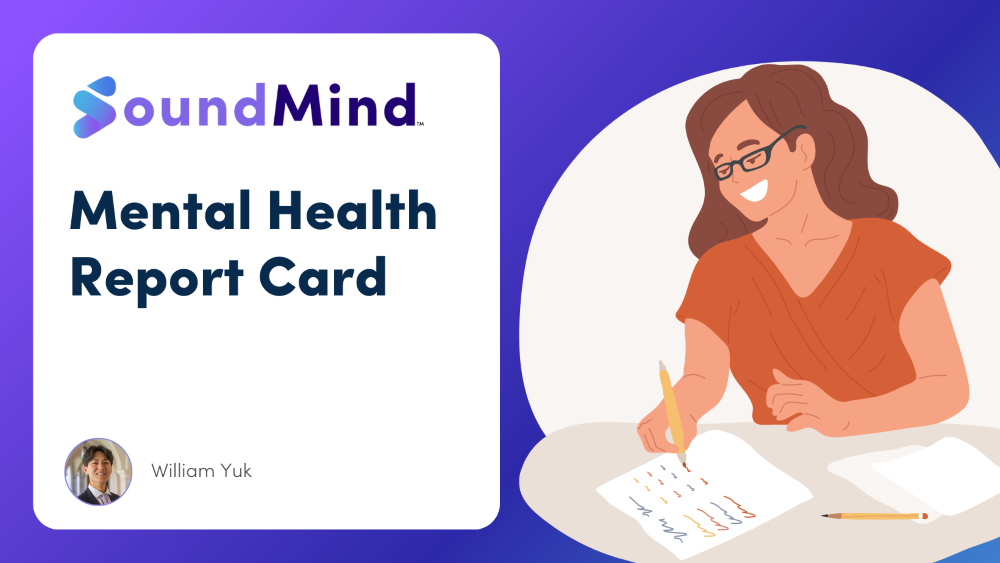Posted on August 22, 2023 by William Yuk


Report cards, a timeless educational tool, have always been a guiding light for students, providing a holistic view of their academic progress. But what if I told you there’s another essential report that deserves just as much attention—one that delves into the depths of your well-being and emotional growth?
In the same way that report cards provide insights into your academic achievements, a more comprehensive mental health report offers a gateway to understanding your emotional and psychological growth. Exploring the intricacies of this journey equips students with self-awareness—an essential tool that can lead to transformative improvements in their lives.
Mental health reports offer valuable insights into the inner struggles that students may be silently facing. Oftentimes, students themselves might not be fully aware of their own behavioral patterns, emotions, or challenges. These mental health reports have the potential to shed light on these subtle nuances by tracking and isolating specific moods and emotions throughout an extended period of time, presenting students with a more comprehensive and accurate depiction of their emotional well-being.
Gaining insight into their emotional struggles through mental health reports can be a catalyst for students to open up about their feelings. Empowered by this understanding, they become more willing to engage in open discussions with educators, parents, or mental health professionals, seeking the support and guidance they need. Breaking the silence surrounding mental health not only brings relief but also reduces the burden of carrying their challenges alone. Sharing their emotions becomes a source of comfort and an essential step towards healing and growth.
With mental health data in their hands, students may detect correlations between their moods and specific commitments or activities, allowing them to take proactive steps to address the root causes of their mental health struggles. For example, if a student notices that their stress and anxiety spike every Wednesday afternoon around the same time they have weekly math quizzes, they can turn this challenge into an opportunity to build healthy coping mechanisms like creating or refining a study schedule, attending extra help sessions and easing pre-exam jitters with some binaural beats.
Just as report cards have been a traditional pillar of education, embracing the power of mental health reports is a progressive step towards holistic learning. Recognizing that emotional well-being is as crucial as academic excellence, we can create a nurturing and supportive educational environment for every student’s journey of growth and self-discovery.
Thank you for reading “Piece of Mind”! If you liked this post, share it with a friend and help us increase our positive impact on Gen-Z mental health 🙂
Subscribe to receive blog updates!